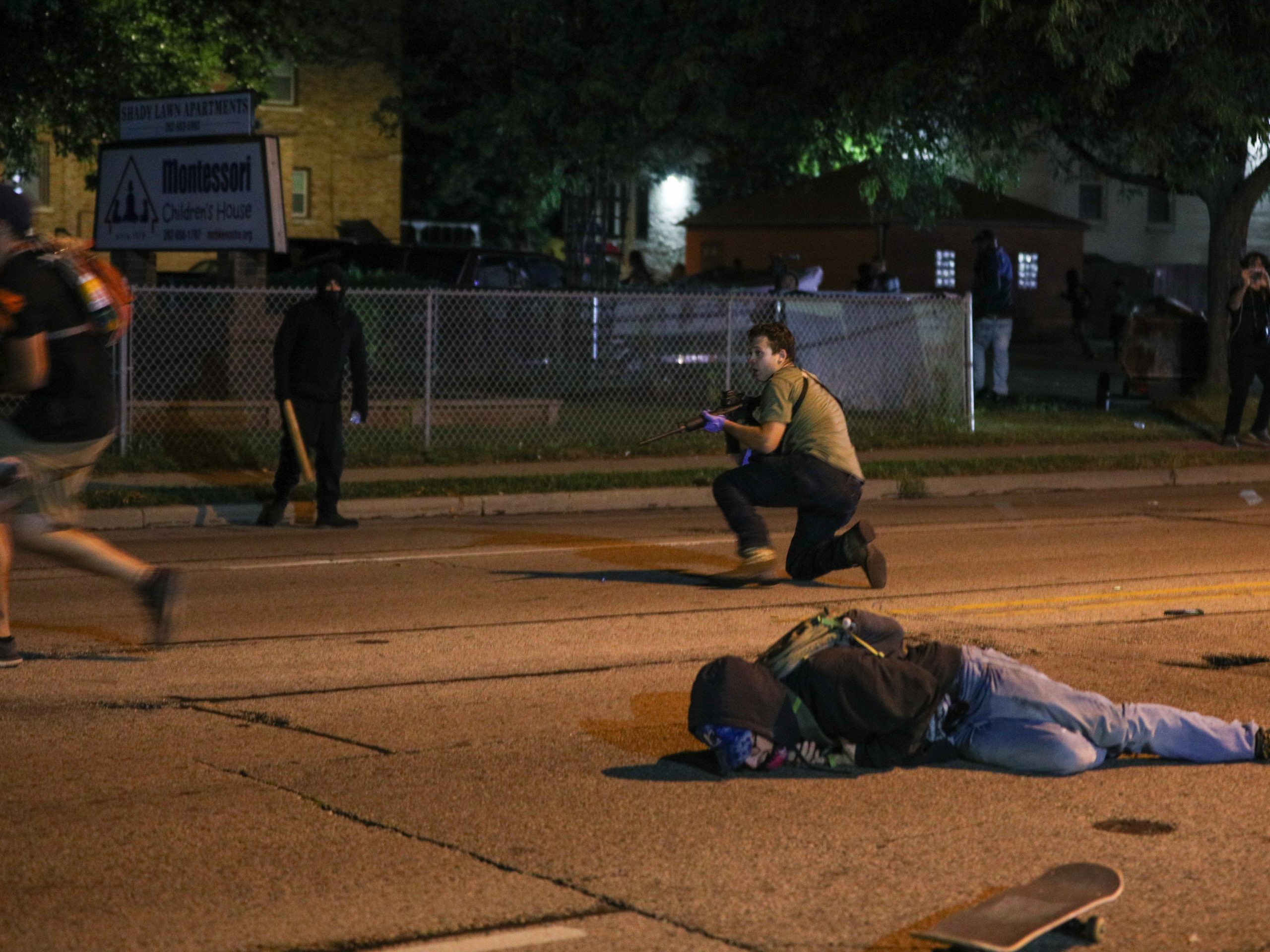
- Four people who said they were attacked by right-wing militia members during protests in Kenosha, Wisconsin are suing Facebook.
- The plaintiffs claim that Facebook enabled the violence by hosting a “Kenosha Guard” page that encouraged militia members to take up arms against protesters.
- Defendants named in the suit include Kyle Rittenhouse, a 17-year-old facing murder charges in connection with the deaths of two protesters, and people with apparent ties to “Boogaloo Bois” and Kenosha Guard militia groups.
- One of the plaintiffs is the partner of a man Rittenhouse is accused of killing.
- The lawsuit hinges on a Reconstruction-era law meant to shield protesters’ First Amendment rights against attempts to intimidate and suppress protests. It also challenges the precedent of Section 230, a federal law that shields platforms like Facebook from being held liable for users’ posts.
- Visit Business Insider’s homepage for more stories.
Facebook is facing a new lawsuit filed by four people who say they were attacked by right wing militia members during protests in Kenosha, Wisconsin, last month.
The lawsuit claims that Facebook enabled violence against protesters by hosting a Kenosha Guard militia page on its platform that issued a “call to arms” against protesters and failing to remove the page after it was reported. It also names three men who are allegedly affiliated with militia groups as defendants, including Kyle Rittenhouse, the 17-year-old accused of shooting three protesters and killing two. Rittenhouse is facing murder charges.
Facebook has seen backlash from employees and activists after The Verge reported that the Kenosha Guard militia page was flagged by users several times before the date of its “call to arms” event, which was the night two protesters were killed. The event was reported more than 450 times, BuzzFeed News reported, but moderators declined to remove the event. CEO Mark Zuckerberg later apologized, saying the event wasn’t removed due to an “operational mistake.”
“It was only days after Plaintiffs and protesters were forced to flee in terror and watch their friends and loved ones die that Facebook CEO Mark Zuckerberg issued a public apology,” the plaintiffs said in their complaint. “This ‘mistake’ empowered right wing militias to inflict extreme violence and deprive Plaintiffs and protesters of their rights.”
One of the plaintiffs is Hannah Gittings, the partner of a man Rittenhouse is charged with killing. The other plaintiffs are Kenosha residents Nathan Peet and Christopher McNeal, who said they were marching in Kenosha to protest racial injustice when they were attacked by militia members, and Carmen Palmer, a Milwaukee resident who traveled to Kenosha with a church group to join the protests.
In a statement, Rittenhouse's attorney Lin Wood said called the lawsuit "errant nonsense" but added that Rittenhouse plans to sue Facebook for defamation over its decision to label the incident a mass shooting and ban posts that celebrate Rittenhouse's actions.
"This lawsuit is errant nonsense but may provide a golden opportunity for obtaining documents & sworn testimony from Facebook to bolster Kyle's future defamation case against Facebook for falsely accusing him of mass murder," Wood said.
The lawsuit hinges on a Reconstruction-era law meant to protect people's First Amendment rights against militia groups like the Ku Klux Klan that aim to intimidate and suppress protesters. It also challenges the precedent of Section 230, a federal law that shields platforms like Facebook from being held liable for users' posts.
"Facebook, where most of the conspiring took place, failed to act to prevent this harm," the complaint says. "Despite over 400 reports of the Kenosha Guard's event page and its call to arms, as well as the violent rhetoric throughout, Facebook failed to remove the page from its site until after several deaths, injuries, and extensive harassment occurred."
Facebook did not immediately respond to a request for comment.
Dit artikel is oorspronkelijk verschenen op z24.nl

